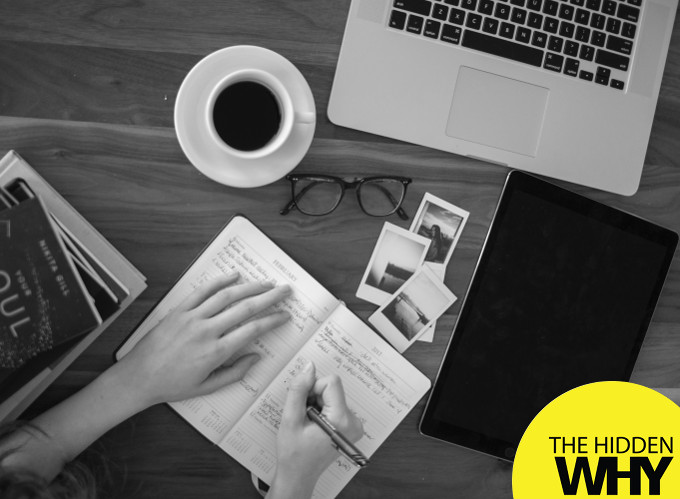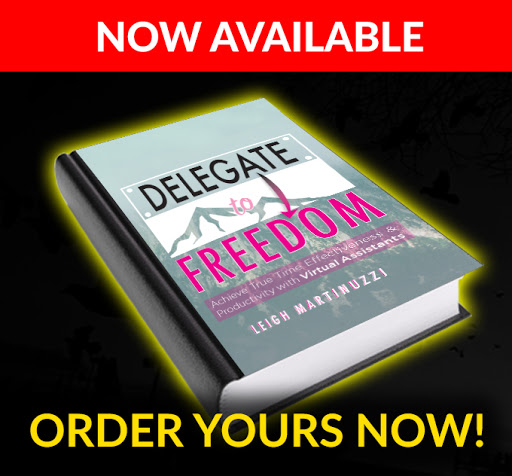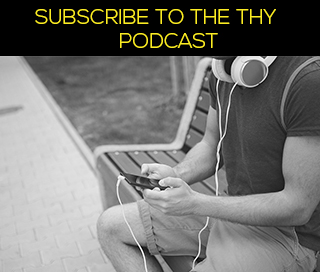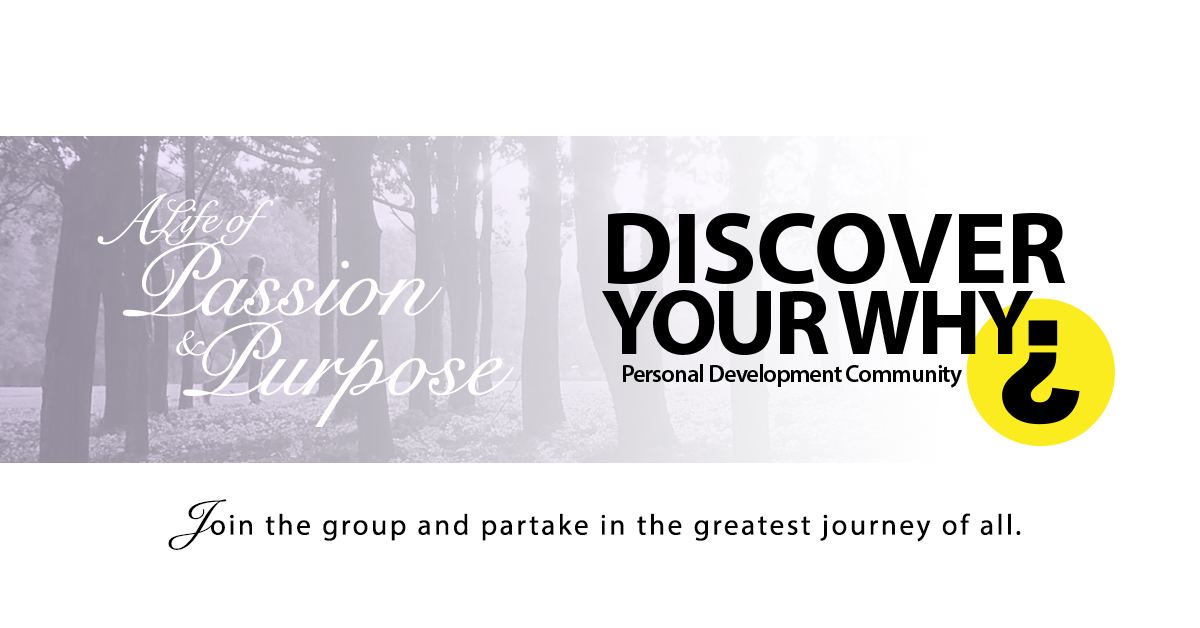
My Morning Routine: Why I Stopped Journaling
Written and narrated by Leigh Martinuzzi
Journaling is essentially a daily practice that involves writing about one’s thoughts, feelings, events and activities that are happening in life at any given moment. When I began focusing on my personal development several years back, everywhere I looked people promoted the benefits of keeping a journal. I was informed that keeping a daily journal would change my life. And so, my journaling habit began.
Recently I have decided to stop journaling. It has been a conscious decision that I have made for a few reasons. For the last several years my morning routine has, on an almost consistent basis, involved waking up (that’s important), exercise, meditation and journaling. Incorporated in this routine is usually some positive input like listening to a podcast or some quick reading. Knowledge or education is a good way to stimulate the brain and motivational input helps spark creative thought and ideas and is also a great way to bring balance to our emotional state. It can provide us with the courage to keep moving forward.
My morning routine gets me in the right frame of mind to start the day. Usually, after my routine, I would do some writing or record a podcast. I believe that it’s important that we all start the day with an activity that fulfils us with joy. Writing does that for me. These are all “feel good” behaviours that I genuinely believe are extremely positive ways to start a day.
It took me some time to master my morning routine. It frequently changes and adapts to my current circumstances in life. I also am one to become easily bored so changing my routine regularly is a great way to keep things interesting. In saying that, my practice has continued to involve the ‘Big Three’, exercise, journaling and meditation.
My morning routine generally consumes one to two hours each day. More frequently it has been to the higher end of that, about two hours. I made this possible by waking up earlier, usually at 4:30 or 5 am. This allowed me to focus on my routine before most other people started their day, including my family. It is the perfect ‘me-time.’
How you start anything is how you finish everything. How you start your day is how you finish your day. Starting my day energised, positive and feeling good began to shift how my day progressed and definitely how it ended. It was a slow process to build the habit however soon I found that the rewards I received in sticking to this routine began to supersede any pain associated with developing it. Waking up at 5 am is still challenging. Putting on my shoes and going for a 5-kilometre run still takes conscious effort. Regardless, I’ve found that when something feels good, we typically continue to do it.
Which brings me to my first point on why I have decided to stop journaling. It began to not feel good. It began to feel like an activity that wasn’t serving any great purpose. It felt like a burden. There are a number of benefits on why keeping a daily journal is considered good. These include emotional stability, healing, increased memory retention, raised intelligence, improved communication and writing skills, performance and goal achievement, discipline, clarity, mindfulness and a heightened cognitive ability.
There have been scientific studies that suggest journaling improves mental and physical health. One study I found online at the University of Rochester Medical centre reported journaling was ideal for managing stress, anxiety and depression. It also concluded that by writing your thoughts and clearing the mind in a non-confrontational or vulnerable manner, because journaling is private and without judgement or fear of exposure, will positively influence our behaviour – eating, exercise, and avoidance of addictive tendencies.
The article also suggests how to keep a journal. It’s pretty straight forward. Like most behaviours when starting out the first rule is to keep it simple and make it easy and as painless as possible. Keep a pen and paper nearby and write just for a few minutes. This will likely grow as you enjoy the process more. Also, don’t overthink it. Write whatever you feel like writing. Put thoughts to paper. That’s it!
I typically would write anywhere up to 5 or 10 minutes and I would fill usually an entire A4 page. I would write the thoughts that were on top of my mind for that day. What I wanted to achieve that day. My review of yesterday or previous days. I may reflect on something I learnt or an event in life that was trying to interpret and better understand. I would usually try including writing down things in life that I am grateful for and I would always try end with some positive, self-reassuring pep talk. After all that, I would review my mission statement or life affirmations.
I definitely believe that writing down our thoughts is a perfect way to clear it from the mind. It will allow space for more productive and purposeful thoughts. We often drown ourselves in the shit-talk that goes on between our ears. Thoughts appear without control and occupy our attention. Quite often we attach ourselves to them. This is how thoughts direct our behaviours and end up depicting the reality we live. And what of all those thoughts that occur on the subconscious level, those that we are unaware of?
When writing them on paper we are better able to assess them and hopefully, in doing so we are less likely to attach ourselves to them. Thoughts that remain in the mind can become jumbled and confusing. On paper we are able to gain more clarity and see them for what they truly are, just thoughts. I suppose in journaling we can release thoughts that occupy our mind and in practice become better at letting go of any unpleasing and controlling thoughts.
After years of journaling, I didn’t notice the activity having any great impact on the quality of my life. I actually feel that by writing out my negative thoughts and limiting self-talk were doing me more harm than good. Perhaps I was at fault. My technique and the quality of reflection may have been insufficient in processing these thoughts. Instead of healing or moving beyond I may have been reinforcing the negative things in my life at the subconscious level. My thoughts on paper dragging me down rather than uplifting me.
One final reason why I’ve decided to stop journaling is due to a matter of time. Understandably it only consumes maybe 15 minutes a day however that’s 15 minutes a day I could dedicate to something else like meditation or time with the family. Because of changing circumstances too, my morning routine was a little more squeezed for time. I started noticing I had less time for my joyful activities like writing and podcasting. And then I realised that writing my blog posts was essentially a method of journaling. An activity that never feels like a burden. It feels good. It brings me joy.
In summary, I do believe there are benefits in keeping a journal. I’d encourage everyone to give it a go. However, like most practices in life, we have to choose those that work for us while being mindful of the purpose. When we are more conscious of why we do anything, we become more purposeful in how we do everything. I’ve stopped journaling because it didn’t feel food, I felt it was having negative benefits, it lacked purpose and I felt my time was better spent on other feel-good activities.
I believe journaling is just one form of self-expression and regardless of the practice you choose, self-expression raises our levels of freedom, fulfilment and happiness in life.
Further Reading and Resources
TED Talks: Ideas worth spreading
Elite Daily: The Voice of Generation Y
Four Hour Work Week: How to escape the 9-5, live anywhere and join the new rich.
The Minimalists: How to pursue a minimalist lifestyle and be happier.
Mind Hacks: Tips and Tricks for Using Your Brain
Rich Roll: Plantpowered Wellness Advocate
The Art of Charm: Build confidence, feel comfortable and networking differently.
The Art of Manliness: Encouraging men to be better husbands, fathers, brothers, citizens.
Tiny Buddha: Simple wisdom for complex lives.
Mind Body Green: Lifestyle media brand dedicated to inspiring you to live your best life.
Zen Habits: Find simplicity and mindfulness in life.
Creative NonFiction: “true stories well told.”
Barking Up the Wrong Tree: science-based answers and expert insight on how to be awesome at life.
The Positivity Blog: Practical articles on happiness, self-esteem, productivity and social skills.
FIND YOUR HIDDEN WHY with THE HIDDEN WHY (THW)
BUILD YOUR LIFE AROUND YOUR PASSION AND LIVE WITH PURPOSE
Sign up for free below and receive cool stuff from me each week + Plus a free copy of “The Four Pillars of Success”
In my weekly emails you will receive ideas, thoughts, learning’s and inspiration on:
- How to design a life that you want and live by your terms
- How to live a life with passion & purpose
- Methods, strategies, & techniques on life hacks
- Messages on how to better live your life
- We will also keep you up to date with fantastic interviews from THW podcast













Leave a Reply